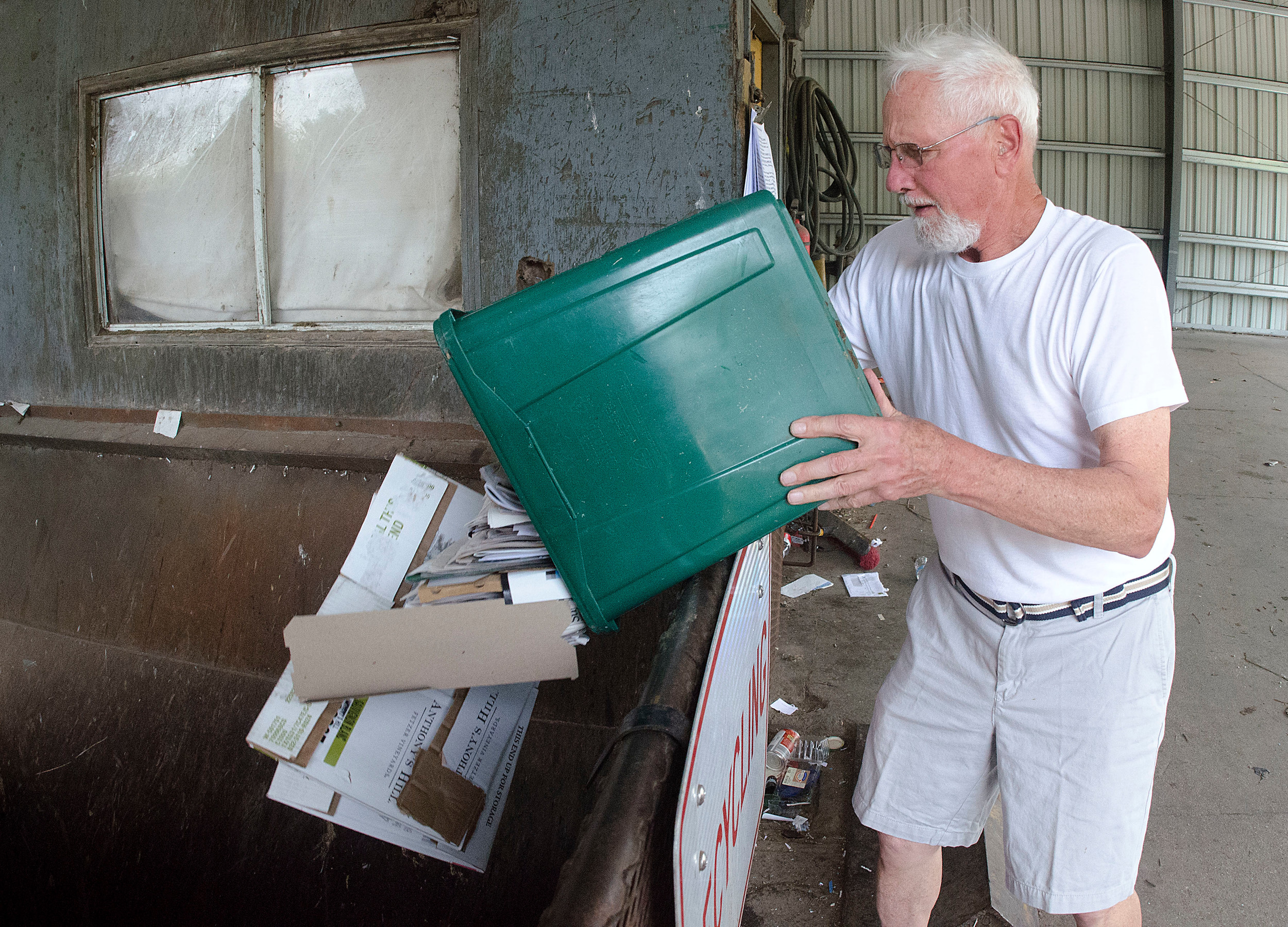‘Tight window’ to purchase pay-as-you-throw bags in Portsmouth
Program starts Feb. 1 at transfer station
PORTSMOUTH — Residents will have only a few days to purchase the new orange pay-as-you-throw (PAYT) bags before the new program goes into effect at the transfer station Feb. 1.
During …
This item is available in full to subscribers.
Please log in to continue |
Register to post eventsIf you'd like to post an event to our calendar, you can create a free account by clicking here. Note that free accounts do not have access to our subscriber-only content. |
Day pass subscribers
Are you a day pass subscriber who needs to log in? Click here to continue.
‘Tight window’ to purchase pay-as-you-throw bags in Portsmouth
Program starts Feb. 1 at transfer station
PORTSMOUTH — Residents will have only a few days to purchase the new orange pay-as-you-throw (PAYT) bags before the new program goes into effect at the transfer station Feb. 1.
During an informational PAYT workshop at Town Hall Wednesday night, Ray Antanya, the town’s recycling coordinator, said the bags won’t be available for sale in local stores until Jan. 28 or Jan. 29 — about 10 days later than the town had initially anticipated.
1“It’s going to be a small window,” said Mr. Antaya. “We’re going to have three or four days.”
Mr. Antaya said he provided WasteZero, the company that manufactures the bags, a total of 17 potential retailers. “I can’t guarantee they will carry them,” he said.
At the Monday, Jan. 22 Town Council meeting, Town Administrator Richard Rainer, Jr. said the bags are shipping "this week" and should be available by the weekend of Jan. 27-28.
The town is "rolling out" with eight stores that will carry the bags, he said: Clements’ Marketplace, both Rite Aids, Domina's Agway, The Green Grocer, Patriot Petroleum, ACE Hardware and the Prudence Island variety store at Homestead.
Both Cumberland Farms stores in Portsmouth and Seabra in Bristol have also agreed to stock the bags, although they’re still waiting for confirmation from their corporate offices, Mr. Rainer said.
The town is still waiting to hear back from a few other retailers who may be selling the bags.
Residents will be able to buy packages of different-sized bags costing $10 each: five 33-gallon bags, eight 15-gallons bags or 10 eight-gallon bags.
Reasons for PAYT
Mr. Antaya spent much of the 40-minute meeting talking about the benefits of PAYT, which is a funding mechanism for the town’s enterprise fund that pays for the transfer station operation. The cost of operating the station has increased dramatically, he said, as have tipping fees charged by the Rhode Island Resource Recovery Corporation (RIRRC).
PAYT is the best response to those rising costs, he said. “It makes economic sense for the town to support the enterprise fund,” Mr. Antaya said. “We get $1.67 on a $2 bag. All the money that’s generated goes into our enterprise fund.”
The rest will come from the sale of new vehicle stickers — $140 for the first household vehicle, $10 for an additional one — that are now on sale at the tax collector’s office at Town Hall during regular business hours. The office will also be open for sticker sales from 8:30 a.m. to 4:30 p.m. on Saturday, Feb. 3.
The less non-recyclable trash a household generates, the more money it will save on orange bags, he said. “The more you recycle, the more you save. Take the recyclables out of these bags,” he said.
The average household will probably use one 33-gallon, $2 bag per week, which means an additional $100 per year on top of the sticker fee, he said. However, if you’re single or have a household that produces less trash, one eight-gallon bag at $1 each may suffice for the week, he said.
Mr. Antaya said he’s received an estimate that the bags will generate close to $400,000 in revenue, based on the assumption that 3,500 households will buy stickers. The town expects to lose some people to private curbside pickup, he acknowledged.
“Right now, it looks like we’ve lost 300 households,” he said.
Environmentally sound
Besides making economic sense, PAYT is also environmentally viable, he said. By increasing its recycling rates, the town will not only save on tipping fees but help extend the life of the Johnston landfill, which is expected to be full by 2033. According to estimates Mr. Antaya said he’s received, PAYT should result in a 44-percent reduction in the amount of Portsmouth’s trash that goes to the landfill.
“Economically it makes sense, environmentally it makes sense, and it’s an equitable solution,” he said.
He urged everyone participating in PAYT to follow the new rules to make the transition a smooth one for everyone involved.
The town’s new contract with J.R. Vinagro Corp. provides for an extra employee at the transfer station to prevent any abuse. As for anyone who breaks the rules by dumping “black bags down the hole,” Mr. Antaya said a warning will be issued the first time, but workers will keep an eye on those offenders.
“We’ll know who you are,” he said.
Mr. Antaya added that he expected there will be a “learning curve” for everyone involved.
“We just hope that moving forward, people have some patience,” he said.







